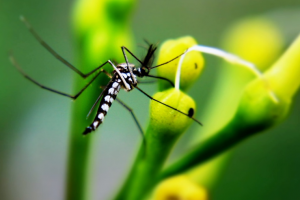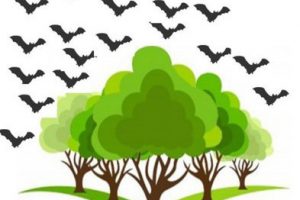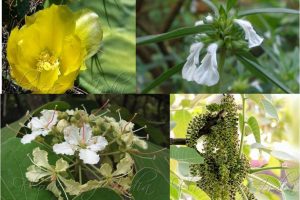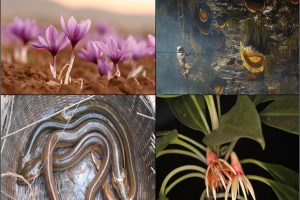EDITORIAL

Welcome to our final issue of the year 2019.
Saving the spirit of diversity like earlier issues, we walk through the realms of mosquitoes, bats, wild edible plants and finally wrapping up with snippets. Our first article is on mosquitoes, the tiny but overly powerful insect who by its own adaptive power occupies almost every type of landform around the globe. They spread diseases, kill millions of people annually, and are insurmountable but still important for life sustaining activities within the ecosystem. A nice description of their remarkable memory related to prey identification, environmental adaptation, and their role in ecosystem functions deserves a reading. Following the same trail, our second article discusses the impact of climate change on wildlife especially on bats. Bats are omnipresent across the tropical and sub-tropical countries irrespective of the landscape, be it rural or urban dwellings. Their remarkable adaptive power against all environmental odds make them ubiquitous across wider geographical area but at the same time an easy prey to climate change. A firsthand account from an ardent bat researcher shows us how climate change at geological time scale affects bat population. More interestingly, a unique assessment has been done in terms of recent anthropocene effect, especially charting out the disastrous impact of post second World War industrial development.
Our wild food section takes you to common man’s Bauhinia, Leucas, Opuntia along with exclusively montane Juglans with their varied cultural geographic distribution and diverse culinary practices. From the Himalayan mountains to the Eastern Coast, from the roadside weedy habitat to cared orchards or kitchen gardens, these members also bring out diverse shades of our food culture and their peaceful coexistence. Undoubtedly a lesson for us to accept and celebrate the plurality of culture, practice and resource management.
Down the line and towards the end, snippets have a collection of exotic and intoxicating mad honey, yummy snacks from the mangroves, restoring saffron from the ancient ruins, and deceptive Cuchia fish.
Wish you all a very happy new year with full of promises and hope for a healthier and culturally enriched society by all means.
Happy reading.
RAJASRI RAY
ARTICLES
Not a Mosquito, after all!
Have you ever wondered what the deadliest animal on Earth is? If you think it could be snakes or stingray or comodo dragons, you are nowhere close and the answer might as well take you by surprise. It’s the mosquitoes, according to reports published by the World Health Organization and the Bill & Melinda Gates Foundation. In terms of the number of human lives claimed per year, mosquitoes top the list with…
Living in a fool’s paradise: The anatomy of doom
Few weeks back I returned home to the whimsical December chillness of South Bengal and was immediately absorbed into anxious addas centered around the recent surge in an unpredictable weather pattern and our role in it. It seemed that many of us have finally awakened to the present and clear danger of climate change, a phenomenon which in its original form has over the course of the history of life on Earth…
WILD UNCULTIVATED EDIBLE PLANTS OF INDIA
WILD UNCULTIVATED EDIBLE PLANTS OF INDIA
Part 4 (……after part 3) Bauhinia vahlii Wight & Arn. Family: Leguminaceae This plant is a crawling member of the upright and prodigious Gulmohar family and ranks as one of the largest creepers in India – is also known as ‘maloo creeper’. This creeper is found across the country and considered as an enemy of its refuge trees. The strong and woody stem can grow into a huge creepy giant, reaching up…
GLIMPSES OF NATURE AND CULTURE
Glimpses Of Nature And Culture
Honeytrap by Rhododendrons In 67 B.C.E, at Trabzon near Black Sea famous general, Gnaeus Pompeius Magnus (Pompey the Great) and his Roman army faced an unprecedented situation. While chasing the Persian army of King Mithridates of Pontus, they were exposed to full pots of local honey, undoubtedly lucrative drink for exhausting soldiers. The result was devastating after a happy sip to that special honey, a literal “honeytrap”. The soldiers were disoriented, unable…




